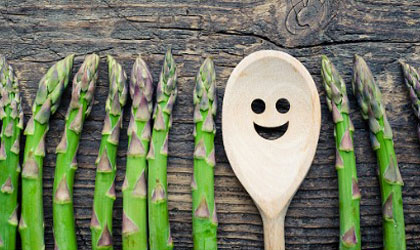
Veganism has entered the zeitgeist in full-force in recent years. The power of plants has won wide acceptance from wellness enthusiasts, nutritionists, and high-street eateries, with vegan choices steadily trickling into diets across the world. Mainly comprising of vegetables, fruits, grains, and nuts, proponents of veganism argue it doesn’t only benefit personal health, but the environment and welfare of animals profit, too. There’s no doubt eating an abundance of plant-based foods is good for you. But does the vegan diet, in all its colourful glory, really reign supreme over every other regimen? Let’s find out.
Benefits
Not all vegan diets were created equally (more on that later), but following a well-balanced plant-based regimen does indeed offer a smorgasbord of health benefits. By virtue of eliminating animal products, you’ll inevitably rely on nutrient-dense alternatives. Enter fruits, veggies, whole grains, pulses, nuts, and seeds. There’s robust evidence to suggest upping your intake of these food groups delivers more antioxidants, fibre, potassium, magnesium, folate and vitamins A, C, Ei. And these nutrients play a host of impressive roles in your body, such as reinforcing immune defences, supporting the digestive system, maintaining skin health, and nourishing the heart.
A plant-based vegan diet is also a powerful weapon in the fight against heart disease. Increasing your consumption of fruits, veggies, pulses, and fibre is thought to reduce high blood pressure and total cholesterol, which can leave you vulnerable to cardiac problemsii. Observational studies have found vegans may experience a 75% lower risk of developing high blood pressure compared to the general population and even fellow vegetariansiii. A number of randomised controlled studies also propose vegan diets are more effective at reducing LDL cholesterol, total cholesterol, and high blood sugariv. A vegan diet boasts such remarkable benefits for heart health thanks to the presence of whole grains and nuts.
Besides this, a carefully planned vegan diet might just be the ticket to shedding those extra pounds, too. An absence of meat and dairy mean less saturated fat, which contains more calories gram for gram than any other food. And fewer calories mean, yes, you’ve guessed it – a trimmer waist. In one investigation, participants following a vegan diet lost 4.2kg over an 18-week periodv. Studies have also purported vegans are more likely to lose weight than their counterparts who adhere to a calorie-restricted diet, even when the vegan groups had complete free reign over how much they atevi.
Some considerations…
However, being a vegan doesn’t always mean knocking back green smoothies, avocado toast, or lentils. Technically, you can still be a vegan if your diet only consists of pasta, crisps, bread, processed faux meats, and frozen vegan meals. But let’s not think for a second this regimen is nutritious. A healthy diet is a balanced one; it contains all the necessary micronutrients needed to live optimally. Gorging on beige and frozen foods fails to meet this basic criterion. Where’s the colour? Where’s the variety? And where are the whole foods?
Be careful with products branded as ‘vegan’, too. You may see this buzzword on a food label and instinctively assume it’s overflowing with health benefits. Spoiler: you’re wrong. You need to become an ingredient sleuth the same way you would with any other food item. Some vegan products are crammed with sugar, salt, and saturated fats, all of which conspire to hijack your health. Take coconut oil, for instance. While this is a staple of vegan cooking, it’s rich in saturated fat. Sure – use it in small amounts, but take care not to go overboard as it may prove counterproductive to your wellness efforts.
Of course, the biggest concern with a vegan diet is the repercussions of cutting out main food groups. By ditching animal-based products – meat, fish and dairy – you run the risk of falling short in essential micronutrients, such as iron, vitamin B12, calcium, vitamin D, and omega 3 fatty acids. And a deficiency in any one of these food groups can compromise the likes of your bone health, mood, and energy levels. If you’re a vegan, you need to consciously plug these nutritional gaps; it’s something you really need to take seriously. When choosing dairy-free options, always look for fortified options with calcium, vitamin B12, and vitamin B2. Hummus is another wise choice since the tahini is rich in zinc, iron, and calcium. For the ultimate insurance policy, it can help to add a multivitamin and omega 3 fatty acids to your diet. Find out more about vegan supplement support here.
On balance
Though veganism isn’t a one-way ticket to eternal vitality and youth, there’s a wealth of scientific research to suggest it’s pretty darn healthy. And it may even be the healthiest diet, granted you take the necessary precautions. Remember, balance is key. Eating a variety of fruits and veggies, whole grains, pulses, nuts, and seeds, and taking a comprehensive multivitamin and omega 3 fatty acids will ensure your body is properly nourished and won’t fall into dangerous deficiency territory.
Beyond health, veganism comes with the added bonus of reducing the suffering of animals, and supporting the environment, which – we can all agree – is more acute and pressing than ever. If fully-fledged veganism doesn’t appeal to you, why not try ‘Meatless Mondays’ or limiting your consumption of animal products to a couple of times per week? You may not believe it, but veganism isn’t about deprivation. With a little creativity and an open mind, there are countless delicious ways to eat more plant-based foods. Get in the kitchen and try something new. You never know, you might even enjoy it.
References:
-
Davey. G., Spencer. E., Appleby. P., Allen. N., Knox. K. & Key. T. (2003). EPIC–Oxford:lifestyle characteristics and nutrient intakes in a cohort of 33 883 meat-eaters and 31 546 non meat-eaters in the UK. Public Health Nutrition. 6(03).
Turner-McGrievy. G., Barnard. N., Cohen. J., Jenkins. D., Gloede. L. & Green. A. (2008). Changes in Nutrient Intake and Dietary Quality among Participants with Type 2 Diabetes Following a Low-Fat Vegan Diet or a Conventional Diabetes Diet for 22 Weeks. Journal of the American Dietetic Association. 108(10), 1636-1645. -
Wang. F., Zheng. J., Yang. B., Jiang. J., Fu. Y. & Li. (2015). Effects of Vegetarian Diets on Blood Lipids: A Systematic Review and Meta: Analysis of Randomized Controlled Trials. Journal of the American Heart Association. 4(10).
-
Le. L. & Sabaté. J. (2014). Beyond Meatless, the Health Effects of Vegan Diets: Findings from the Adventist Cohorts. Nutrients 6(6), 2131-2147.
-
Dinu. M., Abbate. R., Gensini. G., Casini. A. & Sofi. F. (2016). Vegetarian, vegan diets and multiple health outcomes: A systematic review with meta-analysis of observational studies. Critical Reviews in Food Science and Nutrition. 57(17), 3640-3649.
Mishra. S., Xu. J., Agarwal. U., Gonzales. J., Levin. S. & Barnard. N. (2013). A multicenter randomized controlled trial of a plant-based nutrition program to reduce body weight and cardiovascular risk in the corporate setting: the GEICO study. European Journal of Clinical Nutrition. 67(7), 718-724.
Barnard. N., Cohen. J., Jenkins. D., Turner-McGrievy. G., Gloede. L., Jaster. B., Seidl. K., Green. A. & Talpers. S. (2006). A Low-Fat Vegan Diet Improves Glycemic Control and Cardiovascular Risk Factors in a Randomized Clinical Trial in Individuals With Type 2 Diabetes. Diabetes Care. 29(8), 1777-1783. -
Mishra. S., Xu. J., Agarwal. U., Gonzales. J., Levin. S. & Barnard. N. (2013). A multicenter randomized controlled trial of a plant-based nutrition program to reduce body weight and cardiovascular risk in the corporate setting: the GEICO study. European Journal of Clinical Nutrition. 67(7), 718-724.
-
Barnard. N., Cohen. J., Jenkins. D., Turner-McGrievy. G., Gloede. L., Jaster. B., Seidl. K., Green. A. & Talpers. S. (2006). A Low-Fat Vegan Diet Improves Glycemic Control and Cardiovascular Risk Factors in a Randomized Clinical Trial in Individuals With Type 2 Diabetes. Diabetes Care. 29(8), 1777-1783.



